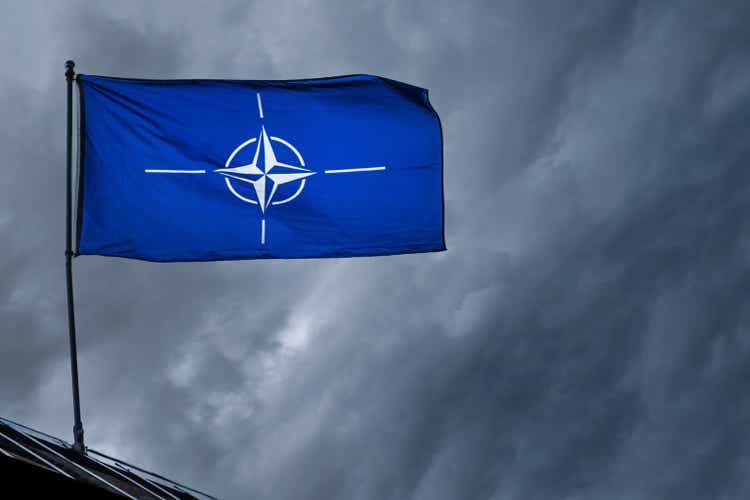
Olga Kaya/iStock Unreleased via Getty Images
75 years after NATO was created to counter threats posed by the Soviet Union, the group is back to mark its second diamond anniversary. The expanded military alliance recently welcomed Finland and Sweden into the fold, and now consists of 32 countries that cover much of Europe, as well as Turkey, Canada, and the United States. Defense spending will be a big focus at the summit tonight in Washington, D.C., as well as how to best protect the group’s nearly 1B citizens given one of the most dangerous security environments since the end of the Cold War.
Up in arms: NATO membership for Ukraine is off the table for now, but the alliance will seek out ways to help the country hold the front line more than two years into a full-scale invasion by Russia. NATO allies are expected to pledge an additional €40B of support to Kyiv to prevent the war from expanding into their territory, though some critics argue that may only embolden Moscow or create greater geopolitical risks in a multipolar world. Keeping the alliance strong and together is not the only problem nations will face at the summit, but many of the members have increasing political troubles at home, like in France and Germany, and even potentially in America.
“Our allies are looking for U.S. leadership,” President Biden told MSNBC in an interview on Monday. “Who else do you think could step in here and do this? I expanded NATO. I solidified NATO. I made sure that we’re in a position where we have a coalition of people of nations around the world to deal with China, with Russia.” However, there is also trouble brewing with Biden’s re-election campaign, with Stifel out with a fresh research note that assigned a 40% chance to him dropping out of the race.
What else to watch: Some strains also surfaced over military spending, with only 23 out of 32 NATO allies on track to meet 2024 targets of spending 2% of their annual GDP on defense. There will likely be calls for that number to be the floor, and not the ceiling, especially with members like Canada that have been dodging their commitments for a decade. Outgoing NATO Secretary General Jens Stoltenberg has also noted the economic power of the alliance, outlining that “NATO allies have half of the world’s economy and half its military might.”
